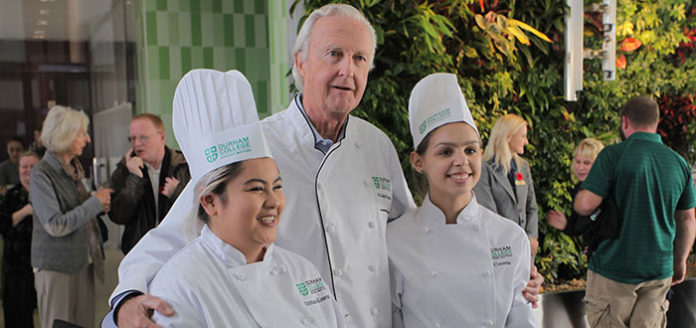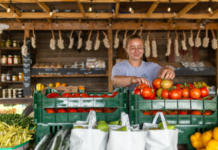Agriculture is an “understated economic engine” powering the province, said Nancy Rutherford, Manager, Agriculture and Rural Affairs in Durham Region’s Planning and Economic Development Department.
And it powers Durham, too. “They are leaders in every way but they don’t talk about it. They are just doing it.”
Agri-food is the leader for goods production in the region and its 1,454 farms contribute more than $273 million to Ontario’s farm production, not including millions in value-added products.
Farming underpins goods movement, distribution, food processing and packaging, machinery and equipment manufacturing, for a start, says Zac Cohoon, a grain and oilseeds farmer in Seagrave and chair of the Durham Agriculture Advisory Council (DAAC).
“A lot of the industry in Ontario is based on what is grown on farms.”
The agriculture sector represents its views to regional council directly through the DAAC. As well, the region made the bold move to institute a dedicated team within economic development to focus on agriculture and to create a five-year agriculture strategy, said Rutherford.
Almost half of Durham’s 622,963 acres are farmland, all of it Class 1 to 3, with a climate moderated by Lake Ontario. The region’s biggest farm commodities are grains and oilseeds, beef, horticulture, dairy, and poultry and egg.
Rutherford says Durham’s agriculture industry benefits from sitting at the gateway to Toronto, the biggest and fastest growing marketplace in the country. Farmers have diversified their products to tap both local and global markets and invested in technology to maximize efficiency, productivity and quality.
In particular, Durham’s livestock and dairy sectors are known for high quality genetics that are sought globally, says Rutherford. For example, Leading Livestock Genetics is an alliance of dairy cow and goat producers in Durham, Kawartha Lakes and Peterborough that market collectively.
Farmers also work together in the Durham Farm Fresh Marketing Association, a 25-year-old farmgate model that has been adopted by other municipalities, and in Durham Farm Connections, an innovative education initiative that includes a focus on jobs in agriculture and related sciences.
“Farmers in Durham tend to be progressive. There are a lot of good techniques and innovation,” said Cohoon at Twin Erin Farms. He has shifted his family’s operation from livestock to growing corn, soybeans, wheat and specialty beans on 1,200 acres in the Port Perry-Scugog area.
That has meant securing niche markets. The farm’s wheat is used to make North American staple Kraft Dinner, while its azuki beans are used in the cream filling for donuts in Japan.
Sheep producer Ken Lamb also transformed his farming operation, shifting from pigs and cattle in 2010.He belongs to Trillium Lamb Inc., a cooperative marketing group of Ontario family farmers founded three years ago.
Lamb is among a long list of Premier’s Award for Agri-Food Innovation Excellence winners in Durham. Also among the winners is Algoma Orchards in Clarington, which uses high-powered, high-definition cameras to ensure eating apples destined for retailers, including Loblaw, Walmart and Costco, are perfect. Those with flaws are pressed for fresh apple juice.
Lamb says farming in Durham means ready access to suppliers and to markets and great highways. Just as importantly, the region is known for its support for agriculture.
“At Golden Horseshoe Food and Farming Alliance meetings they bring up Durham and Durham Farm Fresh and the agriculture strategy. Durham does a good job of being good to farmers.”
Durham College W. Galen Weston Centre for Food
The innovative W. Galen Weston Centre for Food at Durham College, in Whitby, is focused on the field-to fork concept and features cutting-edge kitchens, classrooms and laboratories, an apple orchard, planting fields, pollinator garden, arboretum, demonstrator gardens, a hoop house and greenhouses.
The facilities grow food for use in the centre’s teaching kitchens, its restaurant Bistro ’67 and in a retail shop selling student creations, The Pantry, and for food science laboratories.
The CFF opened in 2013 and is home to the college’s programs in baking, culinary, hospitality, agriculture, horticulture and event management.
Faculty and students work with local farmers to test new products and techniques and the CFF provides a strong, skilled workforce to the local
Durham College names the Centre for Food after W. Galen Weston agriculture and food economy.
















